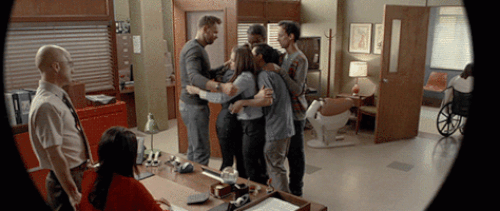
This is so important.
By Higher Perspective — Written on Jun 07, 2016
Photo: weheartit

Anxiety is a little-understood mental disorder, but a common one. Many with anxiety will never seek out any kind of treatment for it and often suffer alone, keeping their thoughts and feelings hidden from those around them.
That's why we've decided to not editorialize the disorder, but bring you the direct thoughts of people who suffer from anxiety. For those of us who tackle anxiety on a daily basis, these thoughts may ring true to you. And for those who know someone struggling with this disorder, you can certainly learn a thing or two about how to treat those you love.
These are 11 people telling you what they've always wanted to.
1. "The hardest part of getting help with social anxiety is talking to people." —Sarah Beewell
2. "I'm still me. I'm not my anxiety." —Abi Wylie
3. "Everything can change in less than 30 seconds. Too many people in one area, no known exits in a certain situation." —Ashleigh Young
4. "For real, it's not you, it's me. Generalized anxiety feels like drowning all the time." —Cory Lee Tyler
5. "Don't give up on me when I isolate myself." —Jen Jolly
6. "Just having someone you love and trust reminding you to breathe sometimes really helps." —Tania Lynn Sidiqi
7. "I need you to reach out to me, even when I'm so anxious I've stopped leaving the house." —Hayley Lyvers

giphy
8. "I'm sorry for every invite I've declined. I'm sorry my anxiety hurts you too." —Melissa Kapuszcak
9. "Don't shut me out. My anxiety may stop me from doing certain things but just being asked to join in can sometimes make my day." —Vikki Rose Donaghy
Related Stories From YourTango:
10. "There's just so much going on in my mind, sometimes I can't keep up with what's going on around me." —Amanda Jade Briskar
11. "When I can't do something, no one is more disappointed than me. Please try to understand that." —Lindsey Hemphill

giphy
This article was originally published at Higher Perspective. Reprinted with permission from the author.




